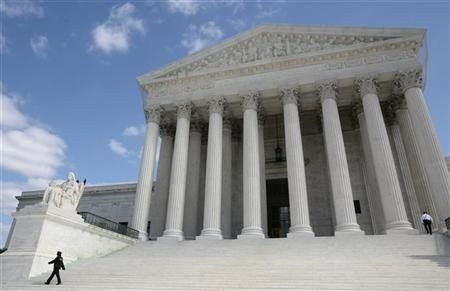Bad Plea Bargain Advice Violates Defendants' Right To Effective Counsel: Supreme Court

In a pair of 5-to-4 decisions by the U.S. Supreme Court Wednesday, Justice Anthony Kennedy wrote a majority opinion protecting defendants' right to good plea bargain advice from lawyers. Defendants now have the right to new trials if their lawyers fail to offer adequate and timely counsel about time-sensitive plea offers or give bad advice when plea bargaining.
Calling the plea bargain central to the administration of the criminal justice system, the U.S. Supreme Court on Wednesday extended the constitutional right to effective legal counsel to include protection from defense attorneys who botch deals offered by prosecutors.
While there is no constitutional right to a plea bargain, Wednesday's decisions will cause extensive ripples in the criminal justice system, as guilty pleas make up 95 percent of all criminal convictions.
In today's criminal justice system, Kennedy wrote, the negotiation of a plea bargain, rather than the unfolding of a trial, is almost always the critical point for a defendant.
Defense attorneys, he added, have responsibilities in the plea bargain process, responsibilities that must be met to render the adequate assistance of counsel that the Sixth Amendment requires in the criminal process at critical stages.
In a rare move, Justice Antonin Scalia read part of his dissent from the bench, calling the majority's ruling absurd.
Until today, no one has thought that there is a constitutional right to a plea bargain, Scalia said, according to Reuters. Today's opinion opens a whole new field of constitutionalized criminal procedure: the field of plea-bargaining law. The court announces this new field in opinions that almost seem designed to sow confusion.
The cases before the Supreme Court involved Missourian Galin Frye, whose lawyer never relayed a plea bargain for driving with a revoked license; and Anthony Cooper of Michigan, whose lawyer convinced him to reject a deal due to the innaccurate advice that prosecutors would be unable to prove he intended to murder a woman he shot, because the bullets hit the woman several times below the waist.
Scalia noted that each defendant's case was handled appropriately: Frye admitted to his offense and Cooper had a fair trial.
Because the right to effective assistance has as its purpose the assurance of a fair trial, the right is not infringed unless counsel's mistakes call into question the basic justice of a defendant's conviction or sentence, Scalia wrote. That has been, until today, entirely clear.
In both cases, the defendants say they would have taken the deals, if not for their counsel's blunders. Cooper's case allowed the Supreme Court to hold that defendants must show that the deal would have been accepted when presented to a court for the judge's approval.
The high court also suggested that a remedy for burned defendants should remove the taint of a constitutional violation, suggesting the court can decide if a defendant should receive the plea deal or whether to toss a conviction from trial in exchange for a lesser charge offered under the bargain.
© Copyright IBTimes 2024. All rights reserved.





















